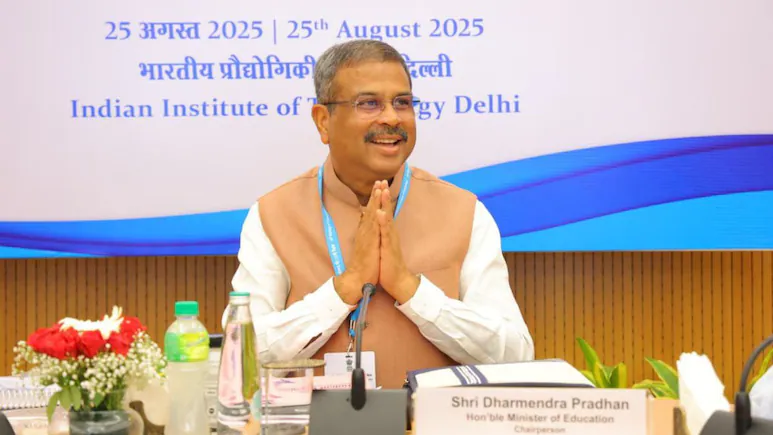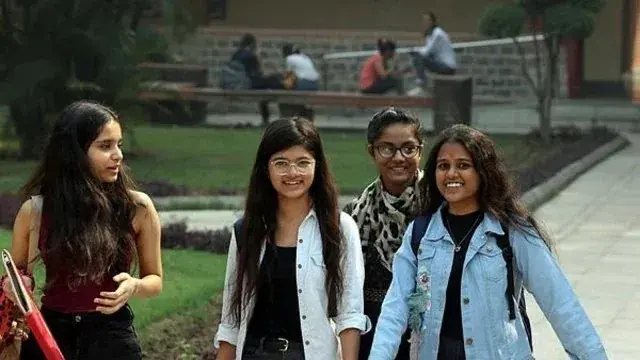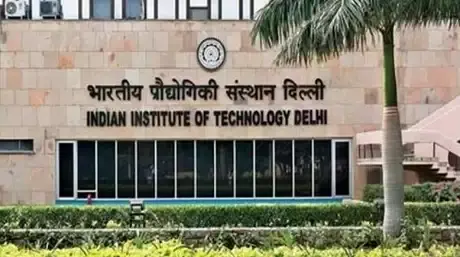Education Minister Urges IITs to Lead India’s ‘Atmanirbhar Bharat’ Mission
Union Education Minister Dharmendra Pradhan chaired the 56th meeting of the IIT Council at IIT Delhi, where key decisions were taken to strengthen IITs as drivers of self-reliance, innovation, and inclusive growth in line with the Prime Minister’s vision of “Atmanirbharta se Samriddha Bharat.” Mr. Pradhan called upon IITs to act as catalysts for transformative change rather than incremental progress. He urged the premier institutes to embrace regional languages alongside English to make education more inclusive, and to focus on producing job creators by solving real-world challenges through translational research in critical technologies. Highlighting their contribution to India’s innovation ecosystem, he noted that IITs have nurtured over 6,000 start-ups, 56 unicorns, and nearly 5,000 patents. He expressed confidence that IITs would not only boost employment and economic opportunities but also play a pivotal role in building a Samriddh and Viksit Bharat by 2047. Supported by initiatives such as the PM Research Fellowship, Centres of Excellence in AI, and research parks, IITs are emerging as engines of economic growth in tune with the Prime Minister’s call to “Reform, Perform, Transform.” Minister of State for Education & DoNER Dr. Sukanta Majumdar said IITs were not just centres of learning but engines of Innovation, Inclusion, and Transformation. With 23 IITs, growing international campuses, and a thriving startup culture, he emphasized that IITs are producing global leaders and innovators while ensuring India continues to RISE through Research, Innovation, Skills, and Entrepreneurship. The meeting, attended by senior policymakers, industry leaders, and academicians including Dr. K. Radhakrishnan (former ISRO Chairman), Sridhar Vembu (Zoho CEO), Prof. M. Jagadesh Kumar (former UGC Chairman), Prof. T.G. Sitharam (AICTE Chairman), and several IIT chairpersons, focused on: Reforming PhD education and improving global rankings Strengthening research commercialisation and industry-academia linkages Adapting curriculum to emerging technologies like AI Promoting mental well-being of students and faculty Enhancing alumni networks for mentorship and collaboration Attracting international students and faculty The Council also resolved to elevate the IIT R&D Fair into a global innovation platform and draft a policy within a month to accelerate translational research and product development for self-reliance under the IITs@2047 roadmap. Source: NDTV
Education Minister Urges IITs to Lead India’s ‘Atmanirbhar Bharat’ Mission Read More »





